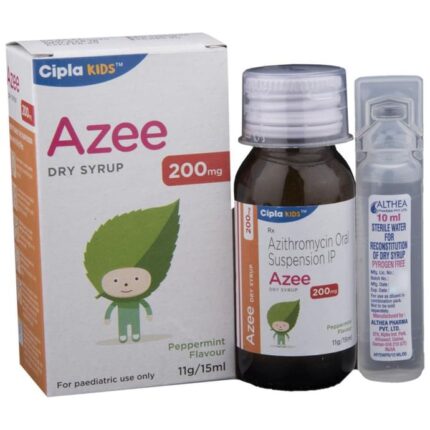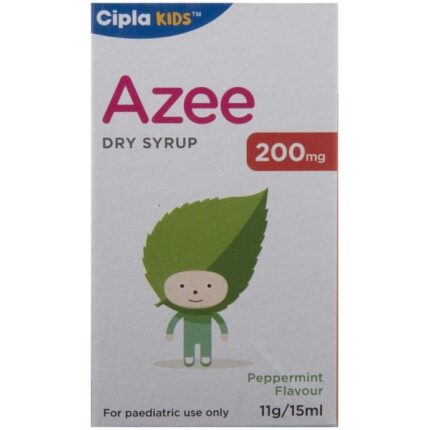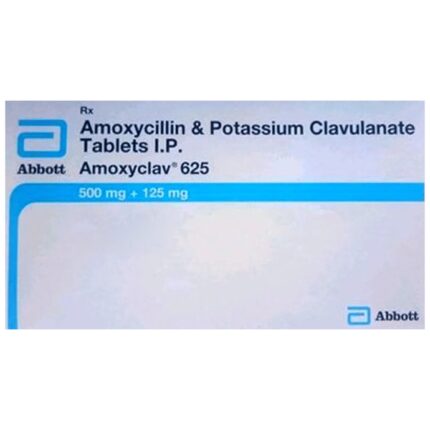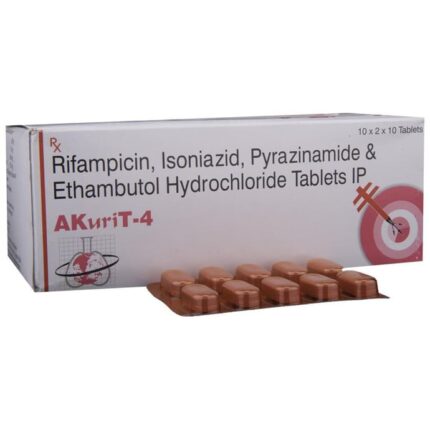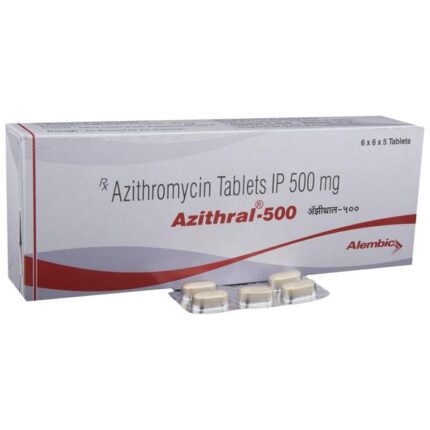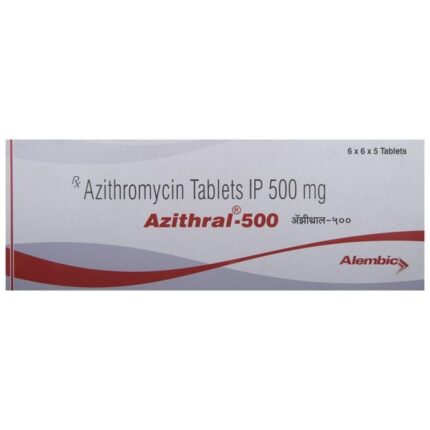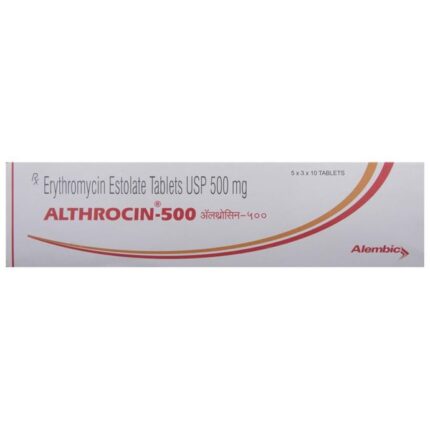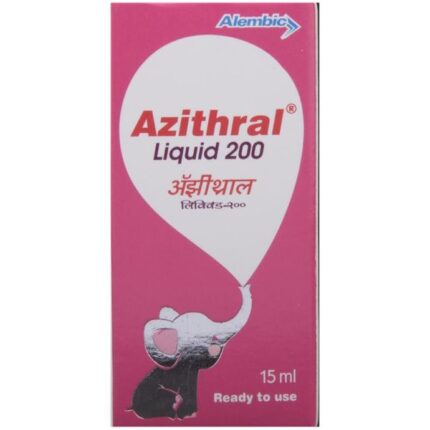DESCRIPTION
Fidenam Injection is an antibiotic that is used to treat severe infections of the skin, lungs, stomach, urinary tract, blood, and brain (eg. meningitis). It works by killing the bacteria that cause these problems. However, it will not treat a viral infection. Fidenam Injection is commonly used to treat critically ill patients admitted to the hospital. This medicine is given by drip/infusion or by direct injection into a vein, under the supervision of a doctor or a nurse. The dose will depend on what type of infection you have, where it is in the body, and how serious it is. You should keep on taking the injection for as long as you have been prescribed, even if your symptoms quickly improve. If you stop taking it too early the infection may return or worsen. Some people may develop side effects like headache, nausea, constipation, diarrhea, anemia, vomiting, and rash. These side effects are usually temporary and go away as your body adjusts to the medicine. Consult your doctor if these side effects bother you or do not go away. Before starting treatment with this medicine, you should tell your doctor if you have epilepsy (seizures), liver or kidney problems or if you are allergic to any antibiotic. While using it, you may be advised blood tests to monitor your blood cell count and kidney function. This medicine is generally regarded as safe to use in pregnancy and breastfeeding if prescribed by the doctor.
INTRODUCTION
In Severe bacterial infections Fidenam Injection belongs to a group of medicines called carbapenem antibiotics. It works by killing bacteria which can cause serious infections. It is a versatile medicine used to treat many different types of bacterial infections such as infections of the brain (meningitis), lungs (pneumonia), abdomen, urinary tract, skin, blood, and heart. This medicine is usually given as an injection by a doctor or nurse. Fidenam Injection usually makes you feel better very quickly but you should continue taking it as prescribed even when you feel better to make sure that all bacteria are killed and do not become resistant.
USE OF
Severe bacterial infections
BENEFITS
Your doctor or nurse will give you this medicine. Kindly do not self administer.
FACTBOX
Chemical Class::Carbapenem derivative|Habit Forming::No|Therapeutic Class::ANTI INFECTIVES|Action Class::Cell wall active agent -Carbapenems
HOW TO USE
Fidenam Injection is an antibiotic. It kills bacteria by preventing them from forming the bacterial protective covering (cell wall) which is needed for them to survive.
SAFETY ADVICE
– Alcohol : SAFE – Consuming alcohol with Fidenam Injection does not cause any harmful side effects. – Pregnancy : SAFE IF PRESCRIBED – Fidenam Injection is generally considered safe to use during pregnancy. Animal studies have shown low or no adverse effects to the developing baby; however, there are limited human studies. – Breast feeding : SAFE IF PRESCRIBED – Fidenam Injection is probably safe to use during breastfeeding. Limited human data suggests that the drug does not represent any significant risk to the baby. – Driving : CONSULT YOUR DOCTOR – It is not known whether Fidenam Injection alters the ability to drive. Do not drive if you experience any symptoms that affect your ability to concentrate and react. – Kidney : CAUTION – Fidenam Injection should be used with caution in patients with kidney disease. Dose adjustment of Fidenam Injection may be needed. Please consult your doctor. – Liver : SAFE IF PRESCRIBED – Fidenam Injection is safe to use in patients with liver disease. No dose adjustment of Fidenam Injection is recommended.
IF MISS
If you miss a dose of Fidenam Injection, please consult your doctor.
COMMON SIDE EFFECT
Vomiting | Headache | Rash | Diarrhea | Anemia (low number of red blood cells) | Constipation
ALCOHOL INTERACTION
SAFE
PREGNANCY INTERACTION
SAFE IF PRESCRIBED
LACTATION INTERACTION
SAFE IF PRESCRIBED
KIDNEY INTERACTION
CAUTION
LIVER INTERACTION
SAFE IF PRESCRIBED
VIEWS
BOUGHT
FAQ
Q. My friend has a history of epilepsy and she was on valproic acid while receiving treatment with Fidenam Injection, still, she had an episode of seizure. Why?::: Any previous history with any other medication should be informed to the doctor before starting your treatment with Fidenam Injection. Medicines like Fidenam Injection can interfere with valproic acid which is used for the treatment of epilepsy, making it less effective. So, the reason for the recent episode of seizure could be the result of such drug interaction. Generally, in cases like these, the doctor prescribes a different medicine.| Q. Even though Fidenam Injection is used for skin infections, can it cause any skin-related problems?::: Serious skin reactions are rare, but some have been reported with the use of Fidenam Injection. Therefore, before starting the treatment inform your doctor if you are allergic to any medicine or antibiotic. Serious skin reactions are a type of allergic reaction. But, if not properly managed then they can endanger life. So, if you notice any rash along with fever or peeling of the skin, discontinue the medication and inform your doctor.| Q. Is Fidenam Injection a strong antibiotic? Which infections does it treat?::: Fidenam Injection is a broad-spectrum antibiotic which means it can treat a variety of bacterial infections. It is used to treat infections affecting the lungs (pneumonia) and complicated infections of the urinary tract, abdomen, and skin and soft tissue infections. Along with that, it is also helpful in treating bacterial infection of the membranes that surround the brain and spinal cord (meningitis) and infections that occur during or after delivery.| Q. Is Fidenam Injection effective against bacteria only? Can it be used for any type of bacterial infection?::: Yes, Fidenam Injection is effective only against bacteria. It is not effective against virus or fungal infections. Fidenam Injection is effective against some bacteria which include Staphylococcus aureus, Streptococcus pneumoniae, S. pyogenes, S. viridans group, etc. Therefore, its use against any other type of bacteria should be avoided.| Q. My cousin was receiving Fidenam Injection for severe skin infection, but the medicine was stopped when she had a fit. Was the fit due to Fidenam Injection?::: There are reports which suggest the occurrence of seizures or fits with the use of Fidenam Injection. However, fits are more likely to occur in patients with a history of seizures or a brain lesion (wound, ulcer, abscess or tumor) or patients having bacterial meningitis or compromised kidney function. Consult your doctor to understand the exact reason.| Q. For how long will I need to take Fidenam Injection?::: The length of the treatment will be decided by your doctor. The doctor will decide the dose depending on your general health, the type of infection you have, and how well you respond to Fidenam Injection. Consult your doctor if you are not sure.| Q. What if Fidenam Injection does not suit me?::: It is common to have minor side effects such as nausea, vomiting, diarrhea, and headache with the use of Fidenam Injection. However, these symptoms generally settle down with continued medication as the body adapts to the medicine. If the side effects bother you, inform your doctor. The doctor will suggest an alternative medicine if required. Serious side effects with Fidenam Injection are very rare. In case you develop serious side effects, seek immediate medical advice.| Q. Does it matter if I miss or stop Fidenam Injection?::: You mustn’t stop the treatment without consulting your doctor. Stopping the treatment may bring back the infection or you may develop resistance to Fidenam Injection. Similar results may be seen if you skip any dose or are forgetful in taking the suggested doses. Therefore, it is recommended that you do not miss doses. If you do, take the missed dose as soon as you can and take the next dose as planned so that you stick to the same overall daily dose.
DISCLAIMER
The Contents of this website & medicine description are for informational purposes only and are not intended to be a substitute for professional medical advice, diagnosis, treatment, or prevention of a disease or medical condition. Please consult a physician or doctor for the treatment and/or management of any disease or medicalconditioin without delay.








